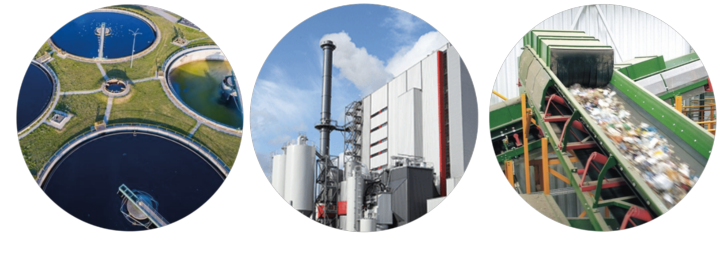General information about modules
Modules are comprised of lectures, seminars, excursions, exercises, and/or laboratory work. To successfully complete a module students must attend the corresponding courses and pass the examinations. This information can be reviewed at any time in the latest module handbook. The required 120 ECTS must be allocated as described below.
These compulsory modules (6 ECTS) aim to provide the very basic tools for the successful completion of the program. All are designed to be completed during the first semester, with the exception of the Process Engineering module which is intended to be completed during the second semester.
- Pollutant Formation and Air Quality Control
- Chemistry and Biology for Environmental Engineers
- Sanitary Engineering
- Thermo and Fluid Dynamics
- Technology Assessment and Presentation Techniques
- Thermal and Mechanical Process Engineering
Each specialized area consists of 18 ECTS, which are allocated as follows:
- Mandatory Core Module (6 ECTS)
- Elective Module (6 ECTS)
- Elective Module (3 ECTS) + Practical Work (3 ECTS) or Industrial Internship (6 ECTS)
The following are the Mandatory Core Modules (6 ECTS) that must be completed:
- Firing Systems and Flue Gas Cleaning (Air Quality Control)
- Mechanical, Biological and Thermal Waste Treatment (Solid Waste Process Engineering)
- Urban Drainage and Design of Waste Water Treatment Plants (Waste Water Process Engineering)
The core modules provide specialized knowledge of the state-of-the-art regarding environmental and process technologies for their respective areas. The Air Quality Control Core Module is offered during the winter semester while the other two core modules are offered during the summer semester.
Besides the core module, each specialization area includes a practical work of 3 ECTS (offered twice a year for the Air Quality specialization and during the winter semester for the other two) two electives of 3 ECTS and 6 ECTS each. Permitted electives for each specialization can be reviewed in the module handbook.
The practical work and 3 ECTS elective can be replaced by an Industrial Internship. Information regarding this can be found on the following link.
Outside their specializations, students must choose 12 ECTS in Advanced Elective Modules. These are free of the specialized area restrictions and can be chosen as preferred, whether they are four 3 ECTS modules or any other combination. This gives students the freedom to take electives outside their specialization or to further specialize in one of them. Available modules can be found in the module handbook.
These 12 ECTS credits can be replaced by a Student Research Project in one of the institutes of the University of Stuttgart. Information regarding this can be found in the following link.
To complete the M.Sc. WASTE a 30 ECTS Master Thesis must be completed either at one of the institutes of the University of Stuttgart, at a company, or at another recognized University. A master thesis is a research project and academic quality is expected.
For further information, please check the Examinations Regulations.
Contact us

Abdou Suso
M.Sc.Course Director M.Sc. WASTE

Janina Ulmer
Dr.Course Director M.Sc. WASTE, M.Sc. Energietechnik and B.Sc. Erneuerbare Energien




